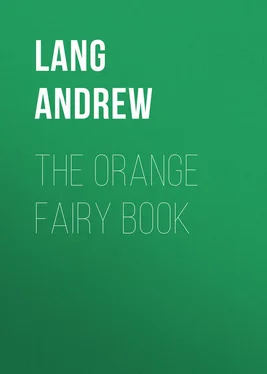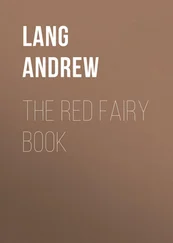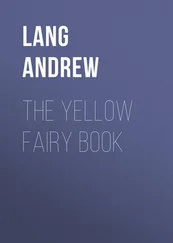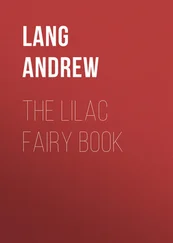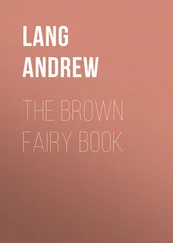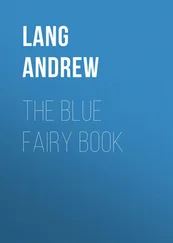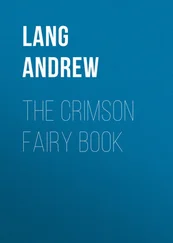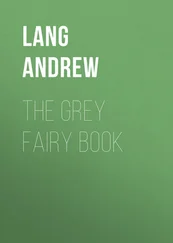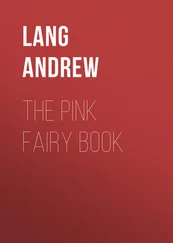Andrew Lang - The Orange Fairy Book
Здесь есть возможность читать онлайн «Andrew Lang - The Orange Fairy Book» — ознакомительный отрывок электронной книги совершенно бесплатно, а после прочтения отрывка купить полную версию. В некоторых случаях можно слушать аудио, скачать через торрент в формате fb2 и присутствует краткое содержание. Жанр: foreign_antique, foreign_prose, на английском языке. Описание произведения, (предисловие) а так же отзывы посетителей доступны на портале библиотеки ЛибКат.
- Название:The Orange Fairy Book
- Автор:
- Жанр:
- Год:неизвестен
- ISBN:нет данных
- Рейтинг книги:3 / 5. Голосов: 1
-
Избранное:Добавить в избранное
- Отзывы:
-
Ваша оценка:
- 60
- 1
- 2
- 3
- 4
- 5
The Orange Fairy Book: краткое содержание, описание и аннотация
Предлагаем к чтению аннотацию, описание, краткое содержание или предисловие (зависит от того, что написал сам автор книги «The Orange Fairy Book»). Если вы не нашли необходимую информацию о книге — напишите в комментариях, мы постараемся отыскать её.
The Orange Fairy Book — читать онлайн ознакомительный отрывок
Ниже представлен текст книги, разбитый по страницам. Система сохранения места последней прочитанной страницы, позволяет с удобством читать онлайн бесплатно книгу «The Orange Fairy Book», без необходимости каждый раз заново искать на чём Вы остановились. Поставьте закладку, и сможете в любой момент перейти на страницу, на которой закончили чтение.
Интервал:
Закладка:
The next morning Ian arose, and led the horse from the stable, without the door hurting him, and he rode across the sea to the island of the Big Women, where the sixteen stable lads met him, and each one offered to take his horse, and to feed her, and to put her into the stable. But Ian only answered:
‘I myself will put her in and will see to her.’ And thus he did. And while he was rubbing her sides the horse said to him:
‘Every kind of drink will they offer you, but see you take none, save whey and water only.’ And so it fell out; and when the sixteen stable-boys saw that he would drink nothing, they drank it all themselves, and one by one lay stretched around the board.
Then Ian felt pleased in his heart that he had withstood their fair words, and he forgot the counsel that the horse had likewise given him saying:
‘Beware lest you fall asleep, and let slip the chance of getting home again’; for while the lads were sleeping sweet music reached his ears, and he slept also.
When this came to pass the steed broke through the stable door, and kicked him and woke him roughly.
‘You did not heed my counsel,’ said she; ‘and who knows if it is not too late to win over the sea? But first take that sword which hangs on the wall, and cut off the heads of the sixteen grooms.’
Filled with shame at being once more proved heedless, Ian arose and did as the horse bade him. Then he ran to the well and poured some of the water into a leather bottle, and jumping on the horse’s back rode over the sea to the island where the raven was waiting for him.
‘Lead the horse into the stable,’ said the raven, ‘and lie down yourself to sleep, for to-morrow you must make the heroes to live again, and must slay the hag. And have a care not to be so foolish to-morrow as you were to-day.’
‘Stay with me for company,’ begged Ian; but the raven shook his head, and flew away.
In the morning Ian awoke, and hastened to the cave where the old hag was sitting, and he struck her dead as she was, before she could cast spells on him. Next he sprinkled the water over the heroes, who came to life again, and together they all journeyed to the other side of the island, and there the raven met them.
‘At last you have followed the counsel that was given you,’ said the raven; ‘and now, having learned wisdom, you may go home again to Grianaig. There you will find that the knight’s two eldest daughters are to be wedded this day to your two brothers, and the youngest to the chief of the men at the rock. But her gold cap you shall give to me and, if you want it, you have only to think of me and I will bring it to you. And one more warning I give you. If anyone asks you whence you came, answer that you have come from behind you; and if anyone asks you whither you are going, say that you are going before you.’
So Ian mounted the horse and set her face to the sea and her back to the shore, and she was off, away and away till she reached the church of Grianaig, and there, in a field of grass, beside a well of water, he leaped down from his saddle.
‘Now,’ the horse said to him, ‘draw your sword and cut off my head.’ But Ian answered:
‘Poor thanks would that be for all the help I have had from you.’
‘It is the only way that I can free myself from the spells that were laid by the giants on me and the raven; for I was a girl and he was a youth wooing me! So have no fears, but do as I have said.’
Then Ian drew his sword as she bade him, and cut off her head, and went on his way without looking backwards. As he walked he saw a woman standing at her house door. She asked him whence he had come, and he answered as the raven had told him, that he came from behind. Next she inquired whither he was going, and this time he made reply that he was going on before him, but that he was thirsty and would like a drink.
‘You are an impudent fellow,’ said the woman; ‘but you shall have a drink.’ And she gave him some milk, which was all she had till her husband came home.
‘Where is your husband?’ asked Ian, and the woman answered him:
‘He is at the knight’s castle trying to fashion gold and silver into a cap for the youngest daughter, like unto the caps that her sisters wear, such as are not to be found in all this land. But, see, he is returning; and now we shall hear how he has sped.’
At that the man entered the gate, and beholding a strange youth, he said to him: ‘What is your trade, boy?’
‘I am a smith,’ replied Ian. And the man answered:
‘Good luck has befallen me, then, for you can help me to make a cap for the knight’s daughter.’
‘You cannot make that cap, and you know it,’ said Ian.
‘Well, I must try,’ replied the man, ‘or I shall be hanged on a tree; so it were a good deed to help me.’
‘I will help you if I can,’ said Ian; ‘but keep the gold and silver for yourself, and lock me into the smithy to-night, and I will work my spells.’ So the man, wondering to himself, locked him in.
As soon as the key was turned in the lock Ian wished for the raven, and the raven came to him, carrying the cap in his mouth.
‘Now take my head off,’ said the raven. But Ian answered:
‘Poor thanks were that for all the help you have given me.’
‘It is the only thanks you can give me,’ said the raven, ‘for I was a youth like yourself before spells were laid on me.’
Then Ian drew his sword and cut off the head of the raven, and shut his eyes so that he might see nothing. After that he lay down and slept till morning dawned, and the man came and unlocked the door and shook the sleeper.
‘Here is the cap,’ said Ian drowsily, drawing it from under his pillow. And he fell asleep again directly.
The sun was high in the heavens when he woke again, and this time he beheld a tall, brown-haired youth standing by him.
‘I am the raven,’ said the youth, ‘and the spells are broken. But now get up and come with me.’
Then they two went together to the place where Ian had left the dead horse; but no horse was there now, only a beautiful maiden.
‘I am the horse,’ she said, ‘and the spells are broken’; and she and the youth went away together.
In the meantime the smith had carried the cap to the castle, and bade a servant belonging to the knight’s youngest daughter bear it to her mistress. But when the girl’s eyes fell on it, she cried out:
‘He speaks false; and if he does not bring me the man who really made the cap I will hang him on the tree beside my window.’
The servant was filled with fear at her words, and hastened and told the smith, who ran as fast as he could to seek for Ian. And when he found him and brought him into the castle, the girl was first struck dumb with joy; then she declared that she would marry nobody else. At this some one fetched to her the knight of Grianaig, and when Ian had told his tale, he vowed that the maiden was right, and that his elder daughters should never wed with men who had not only taken glory to themselves which did not belong to them, but had left the real doer of the deeds to his fate.
And the wedding guests said that the knight had spoken well; and the two elder brothers were fain to leave the country, for no one would converse with them.
The Fox and the Wolf
At the foot of some high mountains there was, once upon a time, a small village, and a little way off two roads met, one of them going to the east and the other to the west. The villagers were quiet, hard-working folk, who toiled in the fields all day, and in the evening set out for home when the bell began to ring in the little church. In the summer mornings they led out their flocks to pasture, and were happy and contented from sunrise to sunset.
Читать дальшеИнтервал:
Закладка:
Похожие книги на «The Orange Fairy Book»
Представляем Вашему вниманию похожие книги на «The Orange Fairy Book» списком для выбора. Мы отобрали схожую по названию и смыслу литературу в надежде предоставить читателям больше вариантов отыскать новые, интересные, ещё непрочитанные произведения.
Обсуждение, отзывы о книге «The Orange Fairy Book» и просто собственные мнения читателей. Оставьте ваши комментарии, напишите, что Вы думаете о произведении, его смысле или главных героях. Укажите что конкретно понравилось, а что нет, и почему Вы так считаете.
